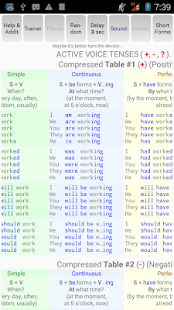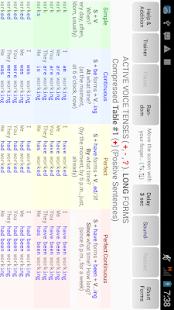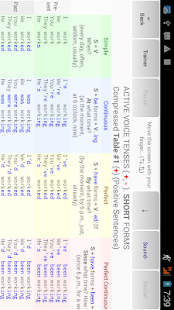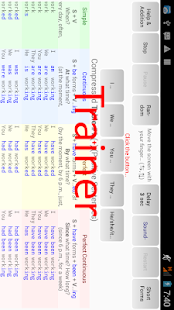English
Every day we offer FREE licensed Android apps and games you’d have to buy otherwise.
Android Giveaway of the Day - English Tenses Big Table
Summary English Tenses Table with Long & Short Forms + Audio Trainer
$0.99
EXPIRED
User rating:
7
2 comments
This giveaway offer has expired. English Tenses Big Table is now available on the regular basis.
Summary English Tenses Table with Long & Short Forms + Audio Trainer
Developer:
George K.
Category:
Education
Version:
Varies with device
Size:
Varies with device
Rated:
Everyone
Compatibility:
Varies with device
Comments on English Tenses Big Table
Thank you for voting!
Please add a comment explaining the reason behind your vote.
Please add a comment explaining the reason behind your vote.
You can also add comment viaFacebook
Windows Giveaway of the Day
An AI-powered object remover for videos and images.








Google Play Store shows this has a rating of 4.4 and their responses to the few problems are Awesome. This is not something that I need, but I would trust the source. It also is not exactly for the beginner from what I have heard, but the developer spend a year creating the program and compiling all the data. Great Job GOTD and George K.
Save | Cancel
You know when a so called English educational teacher/book/app is rubbish and false leading when they start referring to the so-called "Future Tense".
English is a Germanic Language and DOES NOT have any form of a Future tense at all.
All English verbs that express or observe views about future events and time use Present Tense forms. Words such as "will", "is going to" or "shall" are modal verbs. They are not future tense verbs and connot be conjugated into future tense verbs, their only purpose is to express future events, but still require a present tense verb.
So unlike romance languages such as French, Italian or Spanish, English only has Past and Non-Past, no future tense. If I say "I will eat an apple tommorow." the word "eat" is in present tense and that's the action word, "will" just express that time is in the future. Future tense would change the word "eat", but there is none. Basically, it's like saying: at some point in the future, I will be eating an apple in the "present". The same would go for "I will have ate an apple by next week." (ate) is past tense of eat. In this statement, it would be like saying: at some point in the future, I will have ate an apple in the past.
Save | Cancel